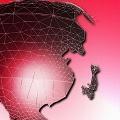Chinese authorities are again stepping up efforts to restrict freedom of expression by blocking websites such as Twitter, Flickr, and Hotmail. The Internet restrictions are among a number of measures the Chinese government has taken in recent weeks to quell dissent surrounding the June 4th anniversary of the violent suppression of demonstrations in Tiananmen Square.
Freedom House executive director Jennifer Windsor said, “Young people in China are already woefully uninformed about the democracy protests in 1989 and the massacre that killed hundreds if not thousands of peaceful demonstrators.” China's decision to block these sites, she said, “represents the latest salvo in a relentless campaign to erase the past.” Chinese authorities regularly shut down portions of the Internet during events deemed politically sensitive, such as the Beijing Olympics and the Communist Party Congresses. According to Freedom House, the Chinese government wields the most sophisticated Internet surveillance and censorship apparatus in the world.
According to the latest State Department Country Reports on Human Rights Practices, Chinese Internet police were able to automatically censor e-mail and web chats based on an ever-changing list of sensitive key words, such as "Falun Gon" and "Tibetan Independence." Despite these controls, Chinese cyberspace has grown into a dynamic forum with hundreds of millions of users.
The United States is concerned about actions that seek to restrict access to the Internet as well as restrictions on the internationally recognized right to freedom of expression.
"Democracy, rule of law, freedom of speech, freedom of religion," said President Barack Obama "are not simply principles of the West ... but rather what I believe to be universal principles..."

